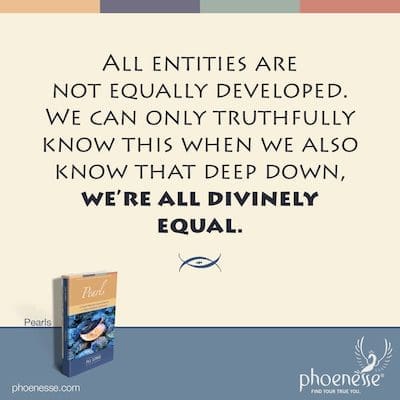Just as human beings have been evolving through various stages of development, cleaning up aspects of negativity within, so it is with world political systems. Humanity has been fluctuating from one type to another. And we’re starting to see that no single political system is all good, and none are all bad.
Along the way, we all stub our toes on one of the greatest pitfalls of being a human: getting lost in the dualistic error that says, “this is right and that is wrong”. Instead, it could be possible for politicians to embrace and represent all forms of government known in the world today, in their divine expression. For this to happen, though, we’ll need to see the unity that exists within apparent contradictions.
We’re about to discover, by reviewing the most popular political systems on the planet—monarchy and feudalism, socialism and communism, and capitalistic democracy—that each has a divine origin plus a handful of distortions. But with a little effort, we can find and enjoy the best in each. We’ll also see how each of them—in their divine and distorted ways—lives in each one of us.

MONARCHY AND FEUDALISM
In the first category, we’ll combine monarchy and feudalism. This is a well known but, by now, obsolete system. Yet we can still find the divine origin in certain highly developed people. They are fully aware of their responsibilities and are able to enjoy the privileges attached with this. To be sure, we will all discover as we go along that these two things—responsibility and privileges—are bunkmates. In short, if we’re willing to shoulder our responsibilities, we get the privileges that match our level of commitment. But we have to earn our right to enjoy the goodies.
Conversely, if we haven’t been willing to assume our rightful responsibilities, we’ll come up short. Actually, we’re either going to feel too guilty to even want any privileges, or with our rebellious streak, we’re going to want to steal them. We will often justify this by claiming the other guy—the one who actually made the effort to earn their keep—is abusive and unfair.
Note, when such accusations are aimed at someone in authority, that person who has stepped into assuming the demanding task of leadership doesn’t get a free pass to retaliate. For if they have rightfully fulfilled the conditions that would earn them their coveted and envied position—replete with its appropriate privileges—they would have no need to rebel. They will only suffer the envy of others when they have not paid the price for their position of authority.
How about when people give themselves fully to a task such as being head of a government or the leader of a nation? They are acting on their responsibility to lead and guide those who frankly don’t want the job. There are more than a few hardships that come with the territory, along with a matching set of privileges.
Leadership asks for a lot of self-discipline that the self-indulgent aren’t really so keen on. Leaders must often give up immediate gratification. This is something their followers would want no part of, even as they are busy resenting the one who leads. Followers also wouldn’t be too quick to sign up for the associated risks—risk of exposure, criticism, slander and hostility—that those in the limelight must have the strength to withstand.
Let’s face it, it’s way easier to be an ordinary citizen than to be the leader of a nation. It’s just easier to follow than to lead. Followers can slack—even be a bit lazy—not needing to care that much, try that hard, think that deeply. It simply doesn’t take a whole lot of courage to follow.
Leaders, on the other hand, create a following through their devotion to their task and by giving their best; they have the opportunity to use their power for the good of all. True leaders don’t shun the many inconveniences connected with their task. This, in a nutshell, describes the divinity that lives within the regimes of monarchy and feudalism.
It’s not hard to see how this could be distorted by selfish people who are ruthless and irresponsible; who abuse their position and use it for their own personal power or material gain; who obstruct justice and unfoldment of the law, and block beauty and fairness. But divine inspiration is always guiding a true monarch who stands solidly at the helm of a ship. They must actively seek that inspiration and put it above all else, or abuse will prevail.
Back in the day, when people were generally not well-developed enough to take on the responsibility for governing themselves, these monarchy systems appeared on Earth. People needed to be guided, and so certain highly developed beings were incarnated to fulfill the task of leading them. Sooner or later, though, the temptations became too much for them. So then along came leaders who took over rulership using force or manipulation, abusing their position and using their power to their advantage.
How does this political system show up in the human psyche? It’s not really so hard to detect. First, we each have an innate inner talent to lead in some way. We are each called to serve a cause by assuming some type of responsibility. No matter how buried, such talents can be lured out of their dormant state. This will bring a person onto their right path.
If we choose not to cultivate our talents, we will then become followers who have fewer rights and privileges. As we wish. But c’mon, if we don’t wish to take on the higher calling of leading, standing exposed and risking everything that goes along with this, we don’t have a right to complain when others step up.
We can apply this equally to overt outer leadership as much as to very subtle expressions. We might be a school teacher, an office supervisor, or in any other framework a leader, a “monarch”. Or we may simply be a follower. Both roles have their value and are distinctly different. We need to know which one we are choosing.
And we also need to know this: If we are a follower who resists our talent to become a leader in our own right, and we go on to rebel against leadership because we are too lazy, fearful, selfish or self-indulgent, we are as dishonest as the ruler who abuses their power.
The term “rulership” refers not only to political expression. Wherever our talents lie, we hold the possibility for higher rulership, in the best sense of this word. And the first place we should be applying it is toward ourselves. This means we need to develop a certain amount of discipline. For we will need firmness and strength to not succumb to every whim of our lower nature. We won’t be able to dish out discipline in a fair and balanced way if we haven’t learned to have a little discipline with ourselves.
So in each soul, both the monarch and the serf exist. How do we react to that part that wants to cheat, to get results without earning them, to have a free ride without giving anything in return? Or do we take discipline well within ourselves, earning our authority in our immediate environment by the way we lead our lives? Then the “monarch principle” is acting in a harmonious, meaningful way that behaves appropriately toward the “responsible citizen principle” in us.
Then monarchy and feudalism will arise in their divine sense, not in an abused sense. It must grow like this, from the inside out. We start by cleaning up our own side of the street. Later, once we’ve established a reasonable amount of self-rulership, we will notice a small sphere of leadership arising naturally, almost as if by itself. It’s like a tree: the deeper the roots grow, the further out it is able to extend itself.

SOCIALISM AND COMMUNISM
Once again we will cover two bases at once under the category socialism and communism. In their divinity, these are also a part of the grand scheme of things. This probably comes as no surprise when we think of the ideas of equality, fairness and justice for all.
But wait, are people really all the same? Don’t forget, we live here in the land of duality where things often appear as opposites, or contradictions, that really are not. So let’s start with this: It is true that people are created equal. Then let’s add this: People are not equal in the way they express themselves. They are not equal in their level of development, or in the direction of their will—in the daily and hourly choices they make regarding their lives. People aren’t equal in their thinking, their feeling, their decision-making or their actions.
It’s like this: An adult and a child are equal as far as their inherent value as people is concerned. But they’re certainly not equal in the way they express themselves in life. So there’s no contradiction in saying both are equal, and both are not equal.
In clear reaction to the abuses of the monarchy and feudalism systems, a form of government emerged in which everyone was equalized. The intention was to overcome the abusive inequality characteristic of monarchy and feudalism.
But with this second system, abuse once again set in. For this is bound to happen whenever one truth is seen as a contradiction to another truth. When the dualistic mind can’t find its way to the unitive plane—where not only do contradictions co-exist but both halves are vitally needed to form one complete whole—it sides with one truth and excludes another. This is how we destroy inner unity.
Through the distortions in our perceptions, we set ourselves on a tightrope. Then any infringement from “the other side” works to diminish the new truth. Hence, equality becomes abused. A uniformity sets in that no longer honors the vitality of human unfoldment. We lost sight of the diversity of our expressions, and the divergence of our development. Free expression of choice and development of talent is superseded by fairness, uniformity and conformity. One size must fit all.
How does this form of government show up inside our souls? For starters, on the deepest level of our being, we know we’re all equals. This is true, no matter how distorted or negative someone might be on the surface. If we can resonate with this, our loving nature and common sense will make it possible to pick up on the differences where, on the outer level, there is obviously not so much equality.
We can only truthfully know this inequality when we also know that deep down, underneath it all, we’re all divinely equal. That is essentially the inner expression, in its purity, of the political systems of socialism or communism.
CAPITALISTIC DEMOCRACY
The current popular form of government in countries like the United States is capitalistic democracy. In its original divine nature, it is about total freedom of expression and abundance as it accrues from personal investment. At the same time, the divine form of this system also makes room for caring for those who, for some reason, can’t be—or aren’t yet willing to be—fully responsible for themselves.
There is no sentimental claim that such people should reap all the same benefits as those who invest their whole being into their lives. But it also doesn’t exploit such people to justify the power drive of a ruler. This form of government then is closer to the fusion of duality—to being about unity—and is a more mature form of government than the previous categories.
So how do we manage to abuse and distort capitalistic democracy? One aspect is the abuse of power by a stronger few. These are the more willful individuals who impose disadvantages on those who can’t or won’t stand up for themselves. In truth, disadvantage will be the natural result for people who refuse to fend for themselves; they become parasites at the expense of others.
But through the distortions in this system, those who exploit others becomes parasites themselves. They use the very ones who want to leach off of others. Instead of working to help these people wake up and adopt more fair and appropriate ways of being, they play right into their hands. They end up validating the excuses of those who are lazy and cheating, who say it is an unfair world they live in and that they are victimized by the greedy. Because they are.
So this system can be abused from both sides. Those clamoring for socialism can become more parasitic and blame the power structure for keeping them down. On the other extreme, those who are strong and diligent, who risk and invest, can justify their greed and drive for power by blaming the parasitic nature of those who are lazy. But abuse is abuse, from any angle.
Because this system offers more possibility for a healthy fusion of two apparent opposites, it also contains more possibility for abuse. So while the other categories offer less freedom, there is less possibility for abuse. That’s the paradoxical way of things. The more developed and freer we become, the greater is the danger for distortion and abuse. As such, in this system, we find the potential for a “negative fusion” when both sides are in distortion.
Freedom is funny that way, always containing more and more possibility for abuse. This is as true inside our souls as in our societies. When abuse reaches a peak, the painful confusion of duality roars to life and the pendulum must go swinging in the opposite direction. Inside ourselves, we’ll go from being a doormat to becoming a raging rebel. Political systems will swing from authoritarianism to an overly permissive system that lets the parasite make a sentimentality out of their “cause.”
Back and forth we go, down through the centuries. Until the margin of the swing narrows and the pendulum approaches the point of fusion. Capitalistic democracy is one such expression. But if this system is heartlessly governed only by the mind, the possibility for error and yes, abuse, will live on. What needs to happen is that a channel must open up to our sense of brotherhood. There must be a desire to be in unity, which transcends the bounds of the limited ego.
How can we apply these principles to our inner world? The real question is: when we’re given enough leash to responsibly run our own lives, do we choke ourselves? It takes more than an ounce of maturity to abstain from the temptation to abuse freedom when we have it. It takes a heap of self-discipline.
If we want to stand on our own two feet and avoid becoming a burden on our fellow-citizens, we’ll need maturity as well as strength and fair-mindedness. It can be tempting to ride on other’s coattails, both in our personal lives and in public life. But every time we give in to this temptation, we draw a tight fence around our emotional freedom. As such, we cripple ourselves into no longer feeling free.
We can always find something to blame for our self-restriction. But over time, we’ll keep frantically struggling, unable to understand why we feel so held back, so tied down, so constricted within. We will have unleashed an inner tyrant by constantly abusing our freedom to create, to choose, and to direct our own ship. Yet we won’t understand that we’re the ones who did this.
WORKING TOGETHER AS ONE
We now have a basic knowledge of these three basic systems, knowing their divine meaning and their typical abuses—inside ourselves and out. So let’s look at how these laws apply to everything from seemingly insignificant life stuff to world-scale governments.
First off, politics today has to be led by people who actively cultivate divine inspiration. Now, if we ourselves don’t possess such a channel, we’re going to have a hard time discerning this in someone else. Perhaps we have a stake in not knowing about such things. Or maybe we’re just being naïve or ignorant. But more and more, people need to collectively come to the realization that this is a thing. And we need to choose our leaders accordingly.
It is easier today to choose inspired leaders because of the spreading of Christ consciousness throughout the world. It takes a lot of courage for a leader to claim a channel of communication with this power. And it’s also not easy to own up to how hard it is to put self-interest aside. And let’s be clear, nothing clogs up a connection with the energy of Christ consciousness more quickly than a self-serving agenda.
With selflessness at the top of the docket, world politics could blend together each one of these political systems. Not in contradiction to each other but as one united whole. Indeed, we could create a single government that combines the divine natures of monarchy and feudalism, socialism and communism, and democratic capitalism.
For they all contain truth and are in no way contradictory to each other. Their fundamental principles are all living inside each of us right now.
Let’s take another tack on this. If we—in our inner government as well as in our world governments—choose not to wisely contain the positive aspects of each of these systems, we’ll wipe ourselves out. Any government that can’t maintain the balance required for living harmoniously must, sooner or later, be destroyed. History bears this out, and is this not the case, over and over, with each one of us?
For example, it is the struggling person who also strains to be independent. They want to exaggerate their individuality at the expense of others, to resist conforming. They won’t ask for help. Meanwhile, the lazy, demanding person wants to be coddled and given to. But they won’t make the slightest effort on their part. They resent whatever life expects of them, doing only what they can’t avoid, but against their will. This is the unruly child that needs a parent’s discipline. Neither is in balance.
What’s more, in a corner of our soul is an area that proudly wants to use power to have everything. This part of ourselves doesn’t care about anyone else. There is no one who doesn’t have some particle of this inside them. If this remains hidden, it will have more power to affect our lives by creating unwanted outcomes. If nothing else, it will create a separating wall of fear and loneliness. We need to face this wall and deal with it, breaking it down and eliminating it. Because it’s walls like this that clog us up.
As citizens, we need to notice when we are rebelling against one aspect of a political system in favor of another. When that happens, we’re in distortion. So we can use our rebellion as a reminder to look within, searching for what’s out of balance. Is it the lazy part that resents authority and doesn’t want to have to pay a price for anything? Could it be the envious part that refuses to step up to the plate and earn what it envies? Maybe it’s the powerful part that secretly wishes to abuse power?
Similar to the way we approach finding inner unity—seeking “both/and” instead of tripping over “either/or”—we can search for harmony in our governing bodies. Where is highest good in this or that specific issue? How open are we to finding the truth? What holds us back from surrendering our will? For how can we ask for willingness to surrender in our leaders when we refuse it in ourselves? The work of clearing always begins in our own backyard.
Unity holds greater truths than we can dream of when we’re caught in a web of duality. But we must cultivate a vision to see things on the unitive plane of reality. Until then, these truths can’t reveal themselves to us. We need to shift to this broader perspective if we want to build a beautiful new world together.
Return to Pearls Contents
Read Original Pathwork® Lecture: #242 The Spiritual Meaning of Political Systems




